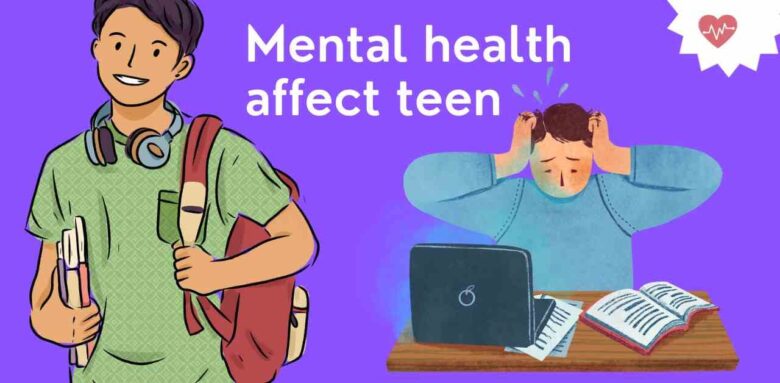
Nurturing Positive Mental Health During the Teenage Years
Table of Contents
Adolescence serves as a transitional phase, bridging the gap between childhood and adulthood. Within this unique period, teenagers face a multitude of challenges. They navigate the complex task of self-discovery while also juggling academic pressures and social expectations. To offer unwavering support and guidance, parents and caregivers play a crucial role in helping teenagers maintain positive mental health.
Recognizing the Significance of Mental Health in Adolescence

During the formative teenage years, focusing on mental health becomes an integral and essential component of overall well-being. This pivotal and transformative stage is marked by both profound psychological and physiological changes that significantly shape and mold one’s identity. It is crucial to prioritize and actively cultivate a positive mental outlook, which not only serves as a protective shield against the detrimental effects of stress and anxiety but also promotes the development of resilience and effective coping mechanisms. This empowerment equips individuals with the necessary tools and skills to gracefully navigate and successfully overcome the complexities and challenges encountered throughout life’s journey.
The Role of Family and Peers
The teenage years emphasize the importance of having a strong and supportive network of family and friends. This phase involves a relentless pursuit of autonomy, as young individuals strive to establish their identities and explore new horizons. A reliable support system not only provides guidance and reassurance but also nurtures a sense of belonging and emotional well-being. Caring family members and trusted friends serve as anchors, empowering teenagers to confidently face life’s challenges. A study by the Canadian Journal of Psychiatry highlights the increasing prevalence of mood and anxiety disorders among Canadian youth, underscoring the urgency of addressing mental health issues in this demographic.
Striking a Healthy Balance

Teenagers often find it daunting to strike a balance between academics, extracurricular activities, and social life. Managing these multiple demands can become overwhelming. However, by encouraging the development of effective time management and prioritization skills, we can empower teenagers to navigate these aspects of their lives with confidence and ease. Equipped with the right tools and strategies, they can fulfill their responsibilities while also dedicating time to self-care and personal growth.
Encouraging Healthy Habits
Establishing a consistent routine that incorporates regular physical activity, such as jogging, swimming, or yoga, along with a well-balanced diet consisting of nutritious foods like fruits, vegetables, and whole grains, significantly contributes to mental health. Additionally, prioritizing adequate sleep of 7 to 9 hours each night enhances overall well-being. These healthy habits not only positively impact mood and energy levels but also play a significant role in reducing stress, increasing resilience, and fostering a greater sense of mental and emotional well-being.
Seeking Professional Help When Needed

While it is natural for teenagers to experience mood fluctuations, it is important to pay attention to persistent feelings of sadness, anxiety, or disinterest. If these emotions persist, seeking professional intervention can be beneficial. Therapists and mental health professionals possess valuable strategies and tools that greatly contribute to improving overall mental well-being. Organizations like Well-Being Canada actively address the gap in mental health awareness among teenagers by providing access to effective programs designed specifically for educators, recognizing the essential role they play in shaping the lives of their students.
Helping teenagers maintain positive mental health involves understanding, support, balance, healthy habits, and seeking professional help when needed. This multifaceted approach guides teenagers smoothly through this critical phase in their lives, setting them up for a future of resilience and success.
